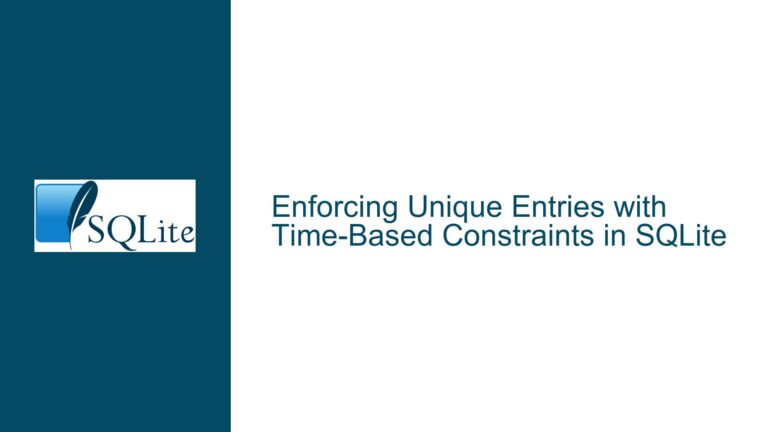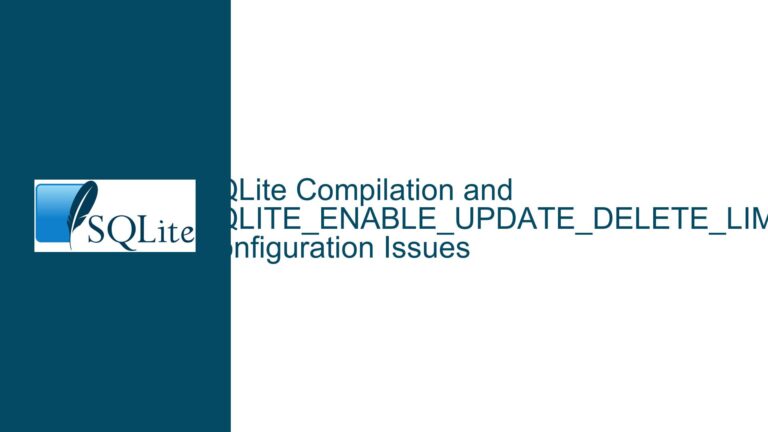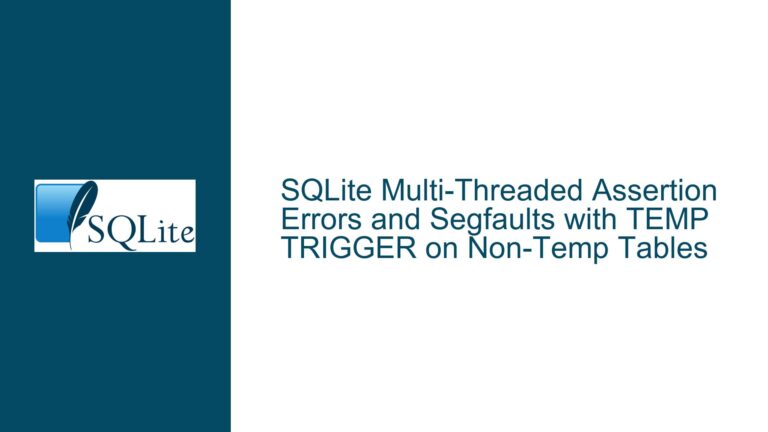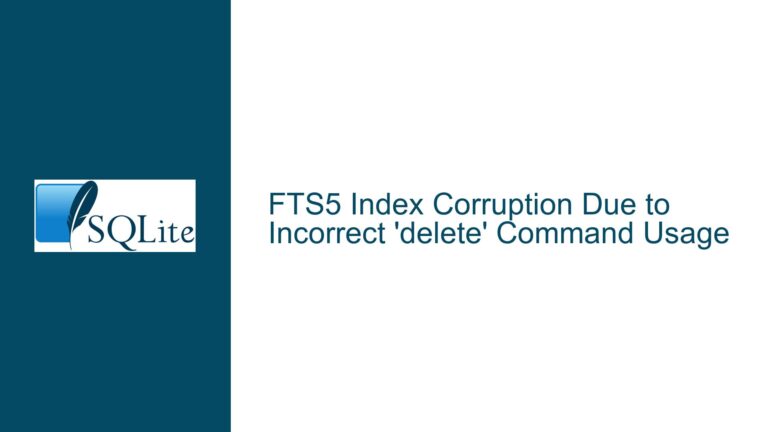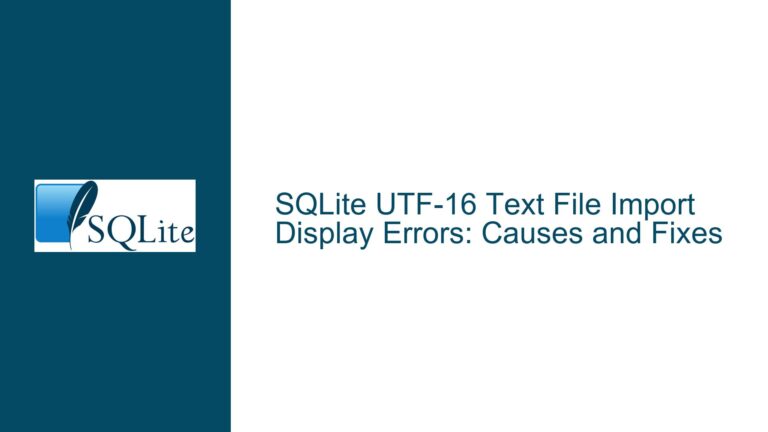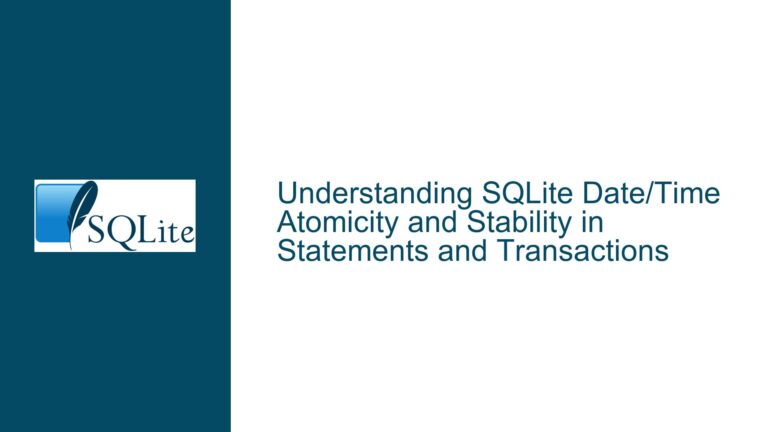Optimizing SQLite Serialization with Custom Buffer Allocation
SQLite Serialization Overhead and Rust Vector Integration The core issue revolves around the inefficiency of the current sqlite3_serialize function in SQLite, which does not allow users to pass a pre-allocated buffer for serialization. This limitation becomes particularly problematic when integrating SQLite with Rust, where the goal is to serialize an in-memory database into a Vec<u8>…


